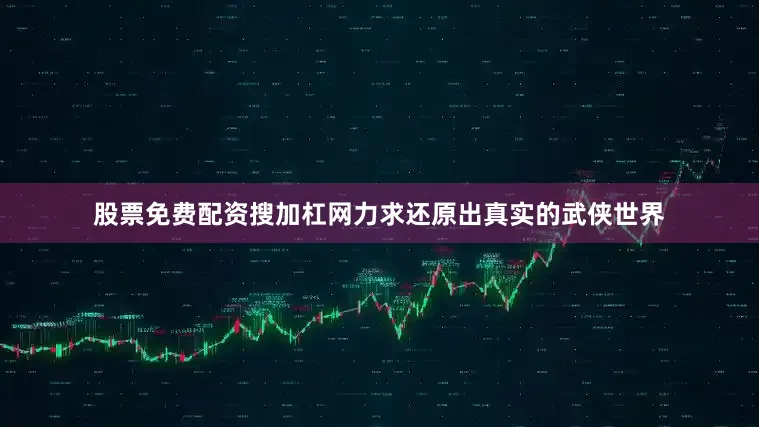
Sure! Here's the rewritten version with added detail and maintained meaning:
---
If you enjoy this article, please click the “follow” button at the top right. Thank you for your support and encouragement. We hope to bring you a comfortable reading experience.
In 1986, on the battlefield of Laoshan, a young soldier was on the brink of death.
He looked at the female medic beside him and whispered with great difficulty, \"Sister, I... I think I'm about to die. Could I have one last hug from you?\"
展开剩余94%Without any hesitation, the female medic embraced the young soldier, her arms wrapped tightly around him. She gently kissed his forehead.
This heart-wrenching moment was captured by a journalist embedded with the military and later became one of the most iconic photographs, titled \"The Death Kiss.\"
29 years later, the woman in the photo visited the martyr's cemetery to pay her respects. She stood in front of the tombstone, her hand tenderly brushing over the engraved name, tears flowing uncontrollably.
The story behind this photo is inseparable from the backdrop of war.
Following the conclusion of the Sino-Vietnamese conflict, China's military made a decisive withdrawal from Vietnam. Our purpose in going to war was clear—to protect our homeland, safeguard our territorial integrity, and not to invade or harm others.
However, as soon as China pulled its troops out, the Vietnamese government took advantage of the situation, sending forces to occupy areas like Laoshan and Zheyinshan along the border.
Laoshan, located at the southernmost tip of Yunnan province, is the highest peak between Boundary Pillars No. 12 and No. 14 along the China-Vietnam border. Its towering ridgelines, resembling a sharp sword, served as the gateway to China's southwestern border.
From the summit, one could gaze 25 kilometers into China's territory to the north and 27 kilometers into Vietnam to the south. This location had always been a contested area throughout history due to its strategic importance.
With the Vietnamese forces controlling Laoshan, it was like placing a time bomb at the entrance of China. After occupying Laoshan, the Vietnamese army took advantage of the region’s complex terrain, building bunkers, tunnels, and planting landmines near our positions. They also erected barbed wire fences to fortify their control.
At the same time, the Vietnamese troops relentlessly fired upon the Chinese border, inciting conflict, looting the local population’s goods, and causing multiple casualties. Laoshan was clearly part of Chinese territory, and such an occupation could not be tolerated.
The Vietnamese army's actions stirred great anger among both the military and civilians along the border. The Chinese government made the decision to launch a counteroffensive to reclaim Laoshan and deliver a lesson to the Vietnamese authorities.
Given China's military strength and firepower advantage, the Central Military Commission issued a directive that we would use overwhelming force—\"killing a chicken with a sledgehammer.\"
This order had two meanings: First, suppress the enemy with firepower to minimize casualties on our side. Second, ensure confidence and certainty in reclaiming Laoshan.
When the battle group received the order, the troops worked swiftly to mobilize weapons and replenish soldiers. Once the news spread that the country was preparing to reclaim Laoshan, every soldier in the military united with a common goal—to drive the Vietnamese forces off Chinese soil!
After a month of intense pre-battle training, the main force of our army secretly gathered at the Laoshan area.
However, at that time, all the high points in Laoshan were occupied by Vietnamese forces. To conduct a battle in such a disadvantageous terrain against an already well-prepared enemy, any leak of our movements could place our army in an extremely vulnerable position.
Nevertheless, the People's Liberation Army knew that they had no choice but to march straight into the tiger's den for this crucial battle.
Given Laoshan's geographical advantages, it was incredibly difficult to attack. The Vietnamese soldiers had arrogantly claimed, \"If the Chinese army wants to reach Laoshan, they will have to use their bodies to pave the way!\"
The Central Military Commission, however, ordered that we spare no effort to minimize casualties at all costs.
After careful planning, our commanders discovered that Laoshan's dense vegetation and frequent cloud cover at night provided perfect concealment for troop movements. The soldiers were instructed to hide during the day and move only at night. This made it very difficult for the Vietnamese forces, who were familiar with the terrain, to detect our movements.
To further confuse the enemy, our troops launched a feint attack, making it appear as though we were striking from the front. The enemy fell for the ruse and began pulling back their forces to defend.
The soldiers exhibited exceptional resolve and bravery during the operation. Due to the region's harsh conditions, poisonous insects were rampant, and various diseases plagued the soldiers.
There was an old saying: \"Three long worms in a bag, three mosquitoes in a dish.\" For the soldiers, enduring the constant bites of mosquitoes was just part of the routine during nighttime marches.
During the day, soldiers would hide in caves to avoid the oppressive heat, their sweat quickly soaking through their uniforms. The difficult terrain and lack of access to water meant that each soldier was only allotted a small container of water daily.
The mountain paths were treacherous, and soldiers often had to traverse irrigation ditches where farmers fetched water. Even under such harsh conditions, the soldiers still managed to gather at their designated locations on time.
Before the operation, our military had prepared over a thousand artillery pieces, concentrating all firepower on the enemy's positions.
For 30 minutes, the barrage of artillery echoed like firecrackers on New Year's Eve, leveling the enemy's defenses. The Vietnamese soldiers, caught off guard in the middle of their sleep, were thrown into chaos.
With the artillery covering them, our soldiers charged forward. In just one hour and forty minutes, they recaptured the Laoshan summit and wiped out the so-called \"hero regiment\" of the Vietnamese army.
But even more astounding, our forces captured the strategically crucial Songmaoling (622.6 Hill) in just 9 minutes.
The outcome of this battle was reported to the General Staff, and the senior leadership could hardly believe their eyes. Even Marshal Ye Jianying, who had led numerous major battles, remarked after watching the documentary on this campaign, “I haven’t seen so many enemy corpses since the Huaihai Campaign!”
This swift and decisive victory greatly boosted national pride.
After reclaiming Laoshan and Zheyinshan, the Central Military Commission decided to continue countering the Vietnamese army to prevent further incursions.
This retaliation lasted for ten years and became known as the \"Two Mountain Rotation Battles.\"
Zhao Weijun, the young soldier in the iconic \"Death Kiss\" photograph, enlisted during this period, determined to defend his homeland.
Like many young soldiers full of patriotic zeal, Zhao Weijun swore to himself that no matter the cost, he would protect China's borders.
With this strong conviction, Zhao Weijun quickly rose through the ranks, becoming a deputy squad leader and joining the Chinese Communist Party.
When Zhao Weijun finally stepped onto the battlefield, he held himself to the highest standards, always charging at the front of his unit, embodying the ideals of a true party member.
Soon, Zhao Weijun's unit was sent to the front lines at Songmaoling in Laoshan.
At that time, the mountain ridges of Songmaoling were riddled with landmines left behind by the Vietnamese army. A single misstep could set off a devastating explosion, and many soldiers had already sacrificed their lives there.
One day, while Zhao Weijun was on alert in a trench, a shell exploded nearby, triggering the landmines. Zhao Weijun was thrown into the air by the blast, and when he hit the ground, both of his legs were severely injured, blood and flesh torn apart.
The intense pain caused Zhao Weijun to lose consciousness, and his comrades quickly carried him to a field hospital.
The battlefield hospital was rudimentary, and due to the shortage of medical supplies, the doctors had no choice but to amputate Zhao Weijun's legs in an attempt to save his life.
During his recovery, the female medic Zhang Ru was assigned to care for Zhao Weijun.
Because of the ongoing combat, medical supplies were scarce, and Zhao Weijun's amputated wounds became severely infected. The infection led to gangrene, and he developed a high fever that lasted for days, teetering on the brink of death.
Desperate to save him, Zhang Ru contacted the military hospital for assistance.
Zhang Ru and a few comrades carefully carried Zhao Weijun to a flatter area, hoping to await rescue by a helicopter from the military hospital.
However, the Vietnamese army's artillery fire disrupted the airspace, preventing the helicopter from landing. As they waited, Zhao Weijun's condition continued to deteriorate rapidly.
Just as his situation grew more critical, Zhao Weijun seemed to regain a flicker of awareness. With great difficulty, he opened his eyes.
In his final moments, Zhao Weijun whispered to Zhang Ru, \"Nurse... thank you for trying to save me. But... I think I’m going to die. Could you hug me one last time?\"
Without hesitation, Zhang Ru leaned down and kissed Zhao Weijun's forehead. With a smile in his eyes, Zhao Weijun passed away at the young age of 18.
After the rotation battles at Laoshan and Zheyinshan concluded, Zhang Ru left the military. Returning to civilian life, she couldn’t forget the soldiers who had died on the battlefield.
In 2011, more than fifty years old, Zhang Ru began her journey to visit the families of her fallen comrades.
For five years, she traveled to 9 provinces and 32 counties, reaching out to the families of the soldiers who had sacrificed their lives. She honored those who never made it home
发布于:天津市配资最良心10大平台,配资公司官网网站,散户配资网提示:文章来自网络,不代表本站观点。



